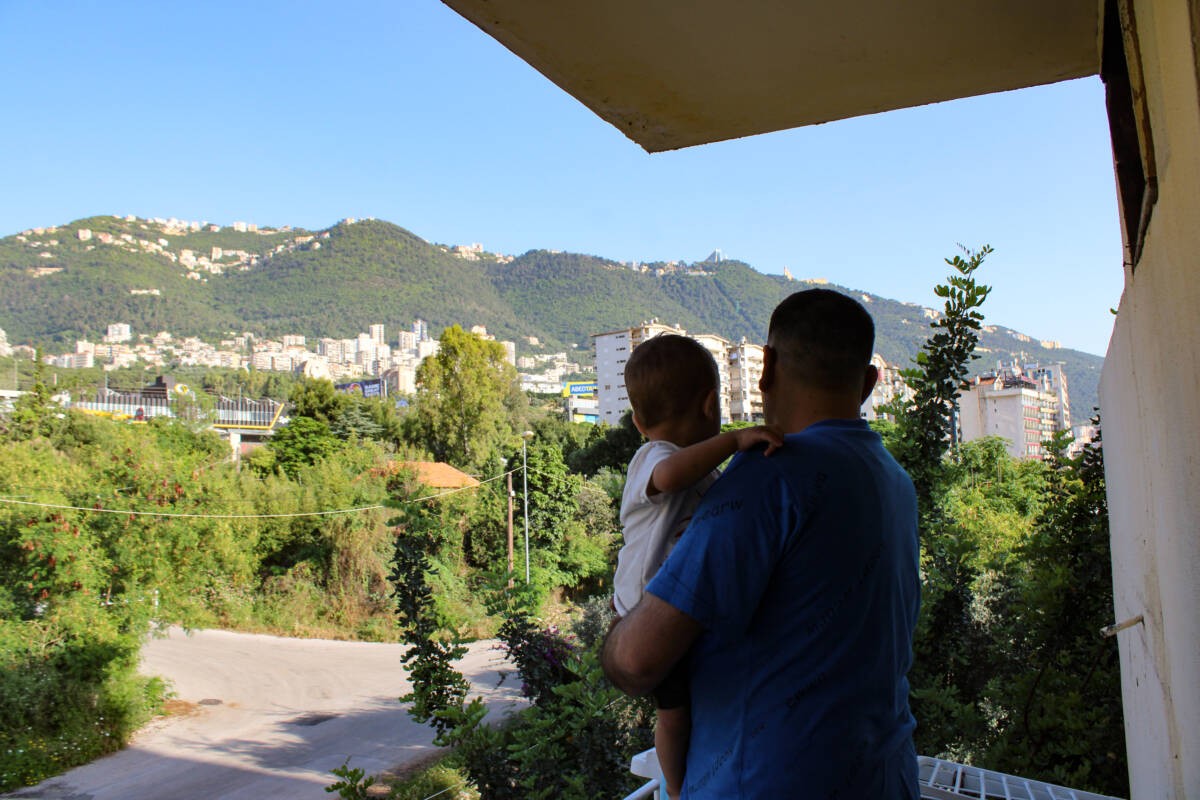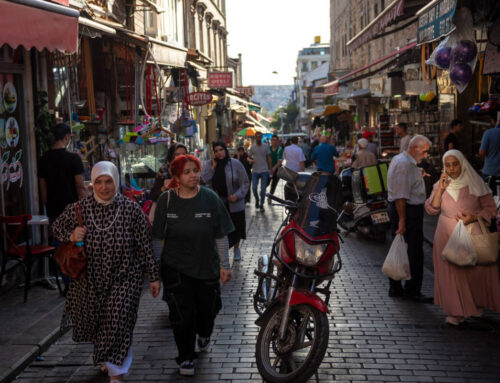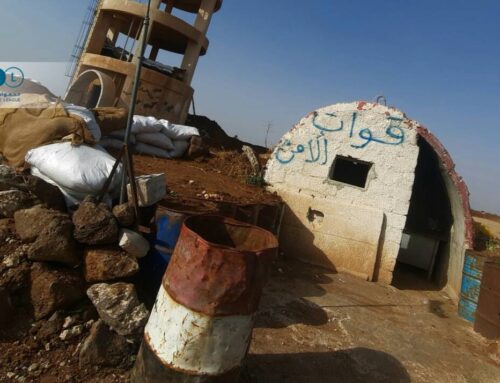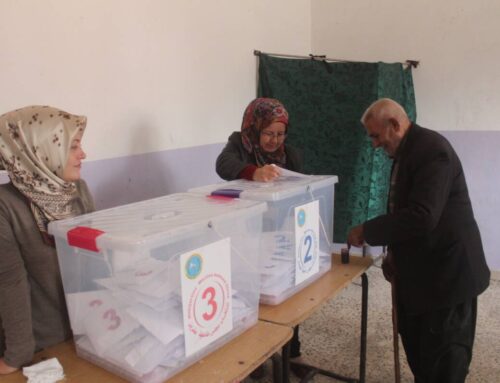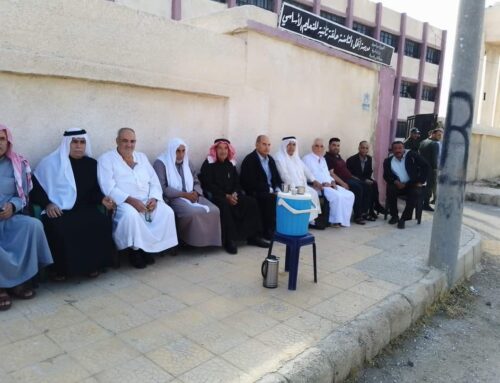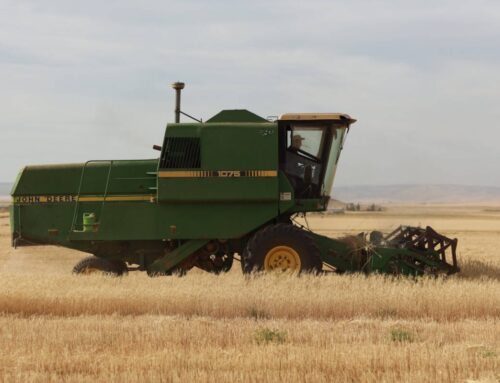Thousands of Syrians facing eviction as Lebanon cracks down
Hundreds of Syrians in Lebanon have been evicted, and thousands more face losing their homes, as the country cracks down on refugees. Some 1,306 Syrian households and individuals have been evicted so far in 2024, compared to 78 in 2023.
14 May 2024
JOUNIEH/KOUBA — “We’re not happy here. The government and the people hate us,” 35-year-old Basil Hussein al-Batoush told Syria Direct at his apartment in Lebanon’s coastal city of Jounieh. The walls of his small sitting room were cracked, the paint peeling. It is too small for his family of eight, and three of his children sleep on the kitchen floor, he said.
Still, the apartment was the best housing option al-Batoush could find after municipal police evicted him and his family from their home of four years. As the Lebanese government cracks down on Syrians, municipalities across the country have evicted more than a thousand Syrians like al-Batoush from their homes.
Al-Batoush fled to Lebanon in 2016 from Syria’s northwestern Idlib province. At first, he lived with wife and children in Zahle, a city in Lebanon’s eastern Bekaa governorate, before moving to an apartment complex in Jounieh.
On April 4, Jounieh’s police issued a final eviction warning for Syrian residents of al-Batoush’s family’s apartment building to vacate the premises within 48 hours, saying they did not have legal residency papers, according to the Access Center for Human Rights (ACHR), a human rights organization based in Beirut and Paris. Even those with legal residency were ultimately evicted “with no exceptions,” it said.
Al-Batoush is among the minority of Lebanon’s 1.5 million Syrian refugees who hold valid residency papers. The vast majority, around 83 percent, do not. He obtained residency through his boss, who sponsored him to work as a delivery driver for a restaurant in Jounieh.
Still, when the police returned on April 10, al-Batoush’s family left alongside about 60 other Syrian families living in the complex’s buildings, he said. Police officers told him there was no choice because the building where he lived was “not registered” and everyone had to leave.
Of the two buildings in al-Batoush’s apartment complex, one housed only Syrians while the other housed both Syrian and Lebanese families. When Syria Direct visited the complex this month, one building appeared not to have been fully vacated. Al-Batoush believes some of his Lebanese neighbors likely stayed.
Twenty-nine men were deported to Syria after residents of al-Batoush’s building were evicted on April 10, and some had not been heard from weeks later, the Associated Press reported on May 3. Al-Batoush was not personally aware of the deportations.
So far in 2024, Lebanon has deported 433 Syrian refugees and arbitrarily arrested 685 refugees, according to figures ACHR provided to Syria Direct. The rights organization noted that these were only the documented cases. It estimates more than 1,000 Syrians have been deported so far this year.
Lebanon has also resumed a campaign promoting the “voluntary return” of Syrian refugees. On Tuesday, more than 300 refugees crossed the border back into Syria in the first “voluntary return” convoy organized since 2022.
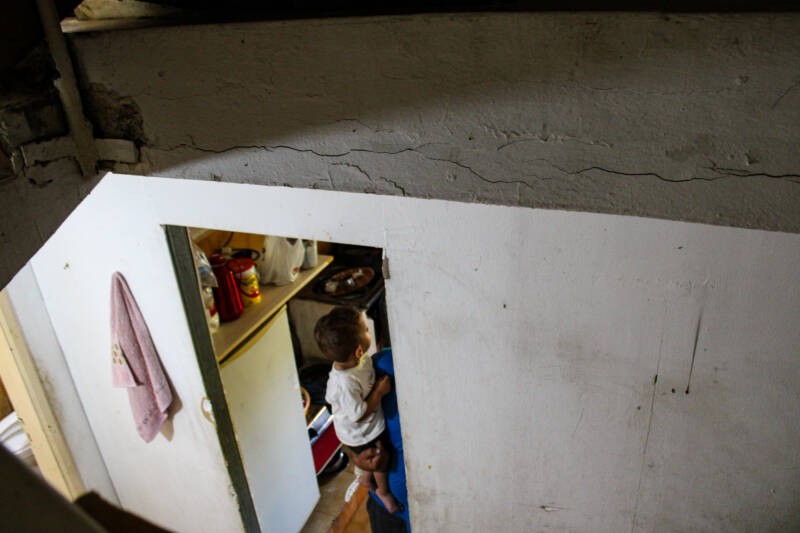
Basil Hussein al-Batoush says his new apartment needs many repairs, which he cannot afford, 9/5/2024 (Hanna Davis/Syria Direct)
Only two families evicted from al-Batoush’s apartment complex stayed in Jounieh, he said. Moving would have meant finding a new job and re-enrolling his children in another school. So, despite now paying more than three times what he used to pay in rent for a shabby apartment, he plans to stay. He is barely scraping by, struggling to afford food, medicine and clothing for his six children.
Evictions ‘one of the most urgent challenges’
Since April—when anti-Syrian sentiment spiked following the killing of Pascal Sleiman, a member of a right-wing Christian political party—Lebanon’s government has instructed municipalities to tighten control over their Syrian residents.
Read more: Fear grips Syrian communities as violence surges in Lebanon
Lebanon’s Interior Ministry announced on April 30 that it ordered municipalities to survey and register Syrians. It also instructed them not to rent property to those who are not registered or do not have legal residency.
Multiple municipalities have not only obliged but issued their own sets of restrictions on Syrians, banning gatherings, imposing curfews, closing Syrian-run businesses and evicting Syrian residents.
“Evictions are currently one of the most urgent challenges for Syrian refugees,” Mohammad Hassan, ACHR’s director, told Syria Direct. ACHR has documented 1,306 forced evictions of Syrian households and individuals so far this year, compared to just 78 evictions last year, Hassan noted.
“The discriminatory attacks on [Syrians’] workplaces and residential areas are unprecedented,” he said. “In many areas, refugees were asked to leave the area whether they were legal [residents] or not.”
Most recent evictions have taken place in majority-Christian areas, targeting “more visible and more independent” Syrians, such as those with families or who do not have a Lebanese employer, one researcher at Synaps, a Beirut-based research institute, told Syria Direct. The researcher requested anonymity due to the current sensitivity of issues related to Syrians in Lebanon.
However, restrictions on Syrians’ housing were “in the making” even before the latest crackdown, the researcher noted. She pointed to the onset of Lebanon’s economic crisis in 2019 and the COVID-19 pandemic in 2020 as when most restrictions began to take hold: “The restrictions started with the camps and then, step by step, municipalities started to have stricter rules over residents.”
Today, “under the current conditions, hundreds of thousands of Syrians will be given eviction notices unless they renew their documents and become ‘legal,’” ACHR’s Hassan said. This is impossible, he added, given that Lebanon’s General Security—the agency in charge of enforcing immigration laws—is not renewing Syrians’ documents.
“Almost 90 percent of refugees don’t have valid documents, which means the majority are facing the risk of being evicted,” Hassan said.
Pervasive fear of eviction, deportation
Fear pervades a small agrarian community of Syrian families in the North Lebanon governorate village of Kouba. On the morning of May 13, municipal police came and notified them they had 15 days to leave.
It was the third time police came to the doors of the Syrian families’ homes since around April 25. The first two times, they recorded Syrians’ names and legal status in Lebanon, residents told Syria Direct.
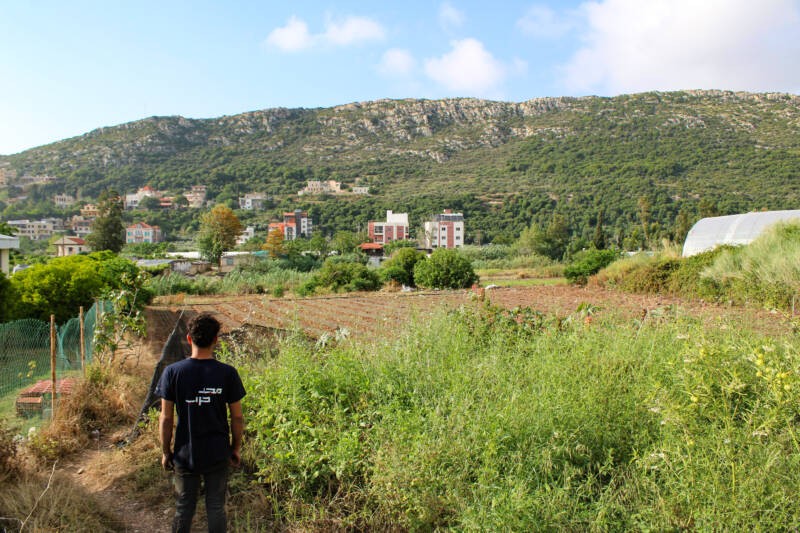
Abeer’s 17-year-old son, Abed, stands overlooking a field in the northeastern Lebanese village of Kouba, 3/5/2024 (Hanna Davis/Syria Direct)
Over Arabic coffee at her home in Kouba, 43-year-old Abeer said she was terrified the police would force her and her family out of their home. “We don’t know [where we will go]. I don’t have a place. Our house collapsed in Syria,” she said, asking to be identified only by her first name for safety reasons.
Abeer fled the Aleppo countryside for Lebanon in 2016 with her husband and eight children. They have been in Kouba for the past eight years, where her husband works growing tomatoes and other vegetables. There are up to 100 Syrian families in Kouba, Abeer said, most of whom have also been living in the village for years.
Abeer’s family are not formally registered as refugees and do not have legal residency. They arrived in Lebanon after 2015, when UNHCR stopped registering Syrians as refugees in the country at the behest of the Lebanese government.
Over the past month the situation in Kouba became “very strict,” Abeer said. One of her sons, 17-year-old Abed, recently stopped going to his English classes in Tripoli, about a 30 minutes’ drive north of Kouba, because he fears being stopped by the authorities. “In this period, I’ve become scared. I don’t have papers,” he said.
Of 331 Syrian refugees in Lebanon interviewed between April 26 and May 3, 87 percent said they felt their security and safety in Lebanon “strongly deteriorated” over the past two months, according to a joint policy brief by ACHR and other international rights groups that was provided to Syria Direct.
Some 79 percent of respondents reported an “extreme” fear of being deported in the next three months, a marked increase from an earlier survey conducted between June and July 2023 in which 55 percent of Syrians reported a fear of deportation.
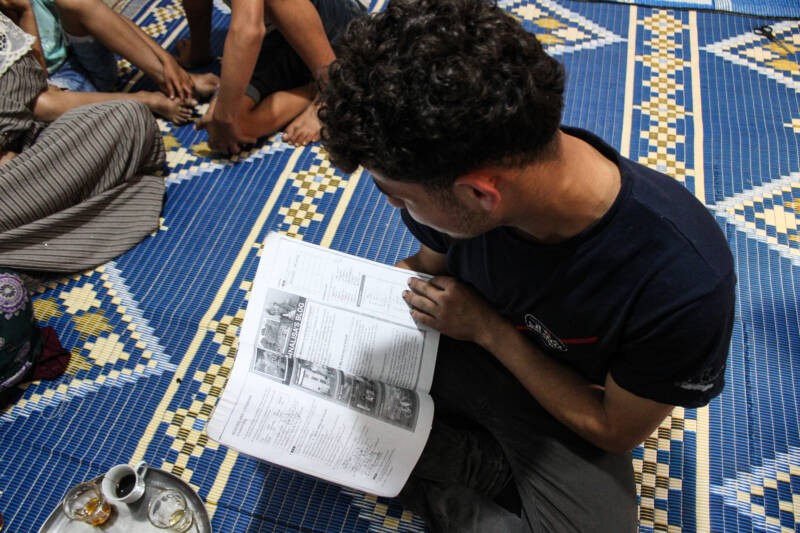
Abed, 17, flips through his English book at his home in Kouba. He recently stopped attending English classes in nearby Tripoli because he fears being arrested and deported while traveling, 3/5/2024 (Hanna Davis, Syria Direct)
One of Abeer’s neighbors, 41-year-old Abdulrahman Muhammad Ali, sat down in Abeer’s home for a cup of coffee. He told Syria Direct he was frustrated by the restrictions, including a curfew the municipality set at the end of April requiring Syrians to stay home after eight o’clock in the evening. “We are like chickens,” he said. “Are we not human? Isn’t it our right to go out and come back? They let us in and out, like chickens.”
‘Where do they want us to go’?
As al-Batoush spoke to Syria Direct on May 9, an anti-refugee protest was underway in the Lebanese capital. Hundreds of supporters of the Free Patriotic Movement (FPM), a Lebanese Christian political party, gathered in downtown Beirut to protest the presence of Syrian refugees and a recent aid deal with the European Union. Demonstrators held up signs declaring “Lebanon is for Lebanese, not for other people” and “Lebanon is not for sale,” alongside other nationalist and anti-Syrian slogans.
“They’re holding a protest to get Syrians to leave,” al-Batoush said. “But where do they want us to go?” His family’s home in Idlib was destroyed, and they fear returning due to ongoing fighting.
In search of a way out, increasing numbers of Syrians are taking to the Mediterranean Sea, risking treacherous journeys to Cyprus. From January to April 17, 59 boats carrying 3,191 passengers set off from Lebanon, according to the UN Refugee Agency (UNHCR).
Al-Batoush has already made two attempts to reach Cyprus by boat from Lebanon: once three months ago, and once last year.
“Syrians here, we want to leave Lebanon, but we can’t go to Syria,” he said. “Bangladesh, Sri Lanka, Ethiopia…any country, but not Syria.”

